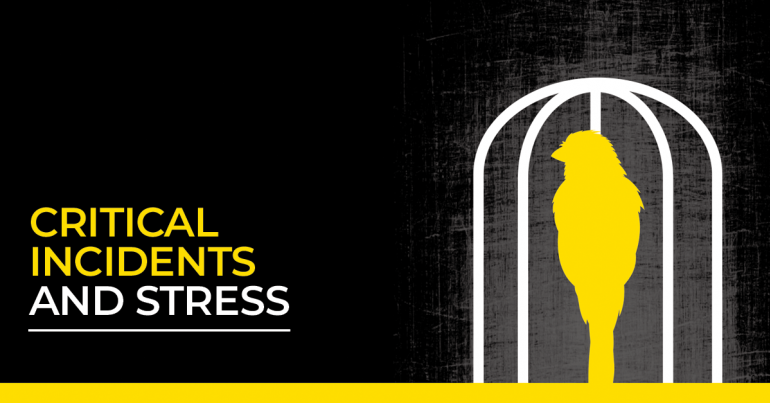What are critical incidents and critical incident stress?
Critical incidents are abnormal, shocking or traumatic events that occur while a worker is on the job. Critical incident stress is a term used to describe the normal reactions of workers who experience or witness critical incidents.
First responders
Many CUPE members work as paramedics, police and security officers, firefighters and dispatchers, child protection and social service workers. These jobs put workers at a high risk of experiencing critical incident stress.
Following critical incidents, workers are often not afforded the necessary time off in order to take care of their mental health. It is common for first responders to be actively discouraged by their workplace culture from expressing their feelings or asking for help on and off the job.
Reactions to critical incidents
Symptoms of critical incident stress can vary significantly between workers. These symptoms include shock, denial, anger, rage, sadness, confusion, terror, shame, humiliation, grief, sorrow and even suicidal thoughts. Employers often shift the blame and responsibility for critical incidents to the worker as being an event beyond their control.
Systemic causes for critical incidents
Poor safety procedures may lead to the occurrence of critical incidents. Understaffing and poor safety procedures can increase the likelihood of violent outbreaks by clients. Poor working conditions, excessive workloads and overtime can increase safety hazards.
What can be done?
1. Identify the problem
- Recognize that critical incidents are a serious health and safety hazard. If a critical incident can occur in your workplace then critical incident stress is likely to affect workers.
2. Preventive actions
- Refuse unsafe working conditions and unnecessary overtime
- Conduct a full review of work organization and conditions that lead to critical incidents
- Conduct regular workplace inspections to identify critical incident hazards
- Demand that employers take action on improving working conditions
-
Insist that employers manage work processes and organization to minimize or remove the possibility of exposing workers to critical incidents
3. Dealing with a critical incident
- Implement a workplace critical incident stress program
- Create a critical incident and critical incident stress policy
- Keep critical incidents and critical incident stress issues on the health and safety committee agenda until they are resolved
- Negotiate contract language where legislation does not provide for specific critical incident and critical incident stress controls
- Sponsor CUPE education around the issue of critical incidents and critical incident stress and its effects



